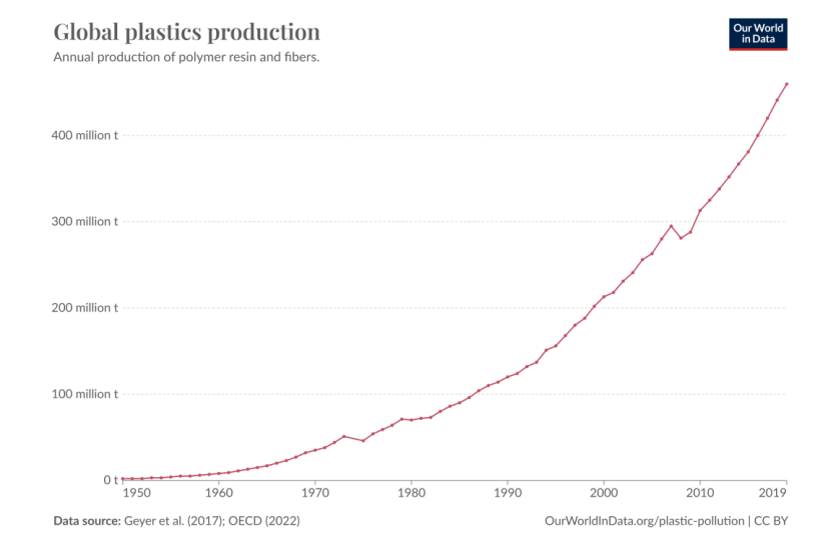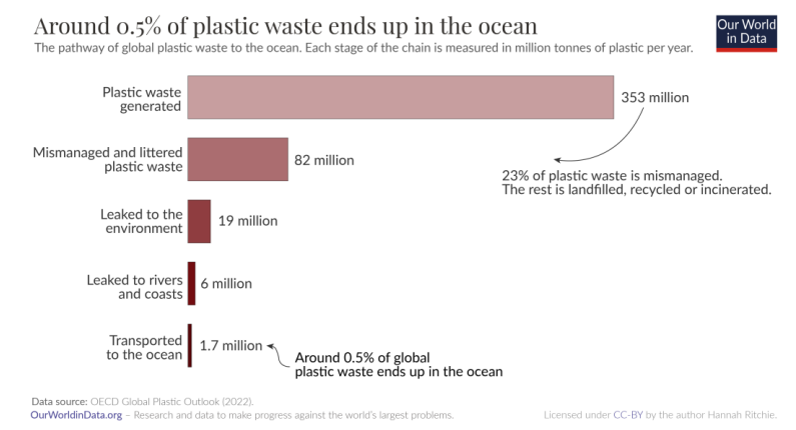Mobilizing citizen science can play a pivotal role, generating data, raising awareness, engaging communities and driving policy action.
Urgent actions by multiple stakeholders are needed across the plastic value chain to tackle plastic pollution, addressing both the production of plastic and sustainable management of waste. One crucial step could be mobilising citizen science as a decisive tool to generate data, raising awareness, fostering community engagement, and advocating for policy action.
Global plastic production is staggering, with close to 350 million tons produced each year. But what happens to this plastic once it is thrown away? According to the World Bank, nearly 70 per cent of this plastic volume ends up in landfills or is incinerated, merely 10 per cent is recycled, while the remaining 20 per cent is released into the environment.

Shockingly, nearly 1.7 million tons of this plastic have found its way into the oceans, as reported by the OECD. The urgency of addressing this issue is underscored by projections from the latest “Global Waste Management Outlook (GWMO) 2024” report, launched at the #UNEA6 in Nairobi, Kenya, indicating that municipal solid waste (MSW) generation is expected to increase from 2.3 billion tonnes in 2023 to 3.8 billion tonnes by 2050.

To tackle this plastic waste crisis and hold governments and organisations accountable for their contribution to the mess, the UK’s week-long Big Plastic Count initiative, between 11 and 17 March, encourages citizens, civil society, and educational institutions to join forces in counting and characterising plastic waste they toss into their bins for a week. The initiative’s very own plastic ID tool educates participants about how to categorise a piece of plastic, thereby increasing the level of public knowledge and later use this knowledge to advocate for better policies and regulations to stem plastic pollution.
By employing a citizen science approach, the initiative aims to gather data on plastic consumption and waste, to advocate for more evidence-based policies that promote sustainable waste management practices to foster a circular economy.
Citizen science methodology can inform evidence-based policy decisions and drive positive environmental outcomes. Initiatives, such as the Big Plastic Count UK, and RECLAIM’s Recycling Data Game (RDG) are steps in that direction.
RECLAIM Project’s RDG, much like the Big Plastic Count, employs citizen science methodology to collect scientific data to train Artificial Intelligence (AI) for effective material recovery, thereby promoting better material sorting based on accurate identification of stuff.

Also read: RECLAIM’s role in sustainable waste management
(Focus on RDG game specifics) In the RDG, developed by the University of Malta, citizens take part in project activities by participating in a game to identify different types of post-consumer waste, training the AI-module to become more effective in identifying plastic waste for recycling and waste management. With the help of gaming and human inputs, player interaction is used to generate data, that feeds in new knowledge to the AI algorithm in turn generating new challenges for users and this iterative feedback loop helps retrain the AI Module. But this process is also used to introduce users to the fundamental concepts related to deep learning and ethical AI.
The RDG has three primary aims: fostering awareness and heightening social sensitivity toward recycling processes, implications, and challenges; engaging citizens in data analysis and tackling scientific challenges; and finally, involving citizens in material recovery research and project activities.
Read: Recycling as we know today
In doing so, RECLAIM Project is actively cognisant of the equity, inclusivity, diversity and transparency in relation to data collection and ethical AI. For instance, the project will incorporate training programs for non-expert users of AI, data and robotics systems, including the basic concepts of trustworthy and ethical AI. It will also pay special attention to including users of diverse age, gender and background to reduce biases and increase fairness to ensure diverse and representative datasets.
WATCH VIDEO: RECLAIM’s initial prMRF tests are successful
RECLAIM’s citizen-science approach empowers citizens to actively engage in material recovery tasks, leveraging their intelligence and knowledge to train AI modules for more precise post-consumer waste sorting. While accelerating the transition to a circular economy requires departing from business-asusual practices, it’s crucial to recognise that various strategies are needed to work for different contexts. While AI can enhance sorting methods, it’s not intended to replace human labour but rather complement the process. No single solution fits all contexts; rather, inclusivity is key, employing strategies that best suit each specific context.